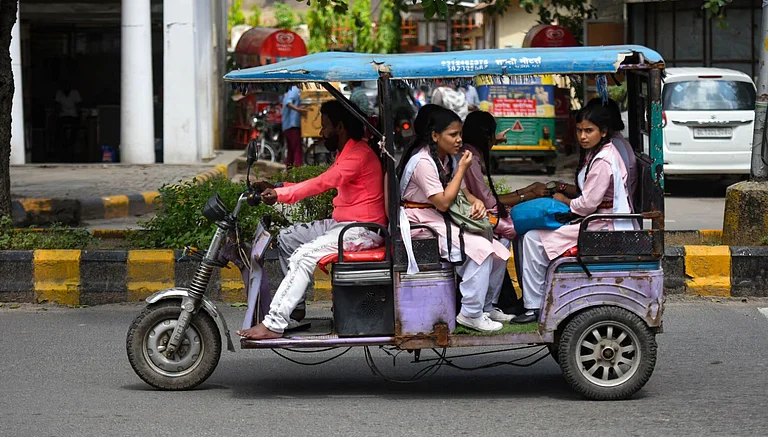The Supreme Court recently ruled that holders of a Light Motor Vehicle (LMV) driving license can legally drive transport vehicles with an unladen weight of up to 7,500 kg. This decision, rendered by a five-judge Constitution bench led by Chief Justice D.Y. Chandrachud, brings significant relief to commercial drivers, as many insurance companies had previously been rejecting accident claims involving such vehicles when drivers held only LMV licences. Insurance firms argued that these drivers were not legally covered for accidents without specific authorization to drive heavier vehicles, thus invalidating claims.
Justice Hrishikesh Roy, writing for the unanimous bench, stated that no evidence indicates that LMV license holders contribute disproportionately to road accidents. He emphasized that these drivers, who spend extensive time on the road, should not be dismissed on technical grounds and deserve fair consideration in their licensing privileges. The bench also included Justices P.S. Narasimha, Pankaj Mithal, and Manoj Misra.
The judgment clarifies a long-standing legal question over whether an LMV license permits driving certain transport vehicles, particularly in cases where weight restrictions are involved. The ambiguity had previously led to numerous disputes, with insurance companies often resisting claim payments for accidents involving LMV drivers handling transport vehicles. Many insurance companies contended that motor accident claims tribunals (MACTs) and courts were taking a “pro-insured” stance, ordering claim payouts despite the drivers not having specific licenses for transport vehicles. According to the insurance firms, these rulings overlooked the limitations of an LMV license and unfairly burdened them.
The bench reserved its decision on August 21 after hearing arguments from Attorney General R. Venkataramani, who represented the Centre and informed the court that efforts to amend the Motor Vehicles (MV) Act, 1988, are near completion. The Supreme Court urged the government to expedite these amendments to settle legal uncertainties around LMV licenses and transport vehicle driving rights. This amendment could ultimately reduce claim disputes by establishing clearer rules on license classifications.
In the meantime, the Supreme Court’s ruling provides immediate clarity, offering LMV license holders a broader scope of permissible driving, benefiting thousands of commercial drivers who would otherwise face restrictions. Additionally, this judgment implies that insurance companies may need to revise their policy guidelines to align with the court’s interpretation, as it allows drivers with LMV licenses to operate transport vehicles up to the specified weight.
This ruling signals a move toward a fairer and more practical regulatory framework, balancing the rights of drivers with the operational requirements of insurance providers. By reinforcing drivers’ rights, the Supreme Court has set a precedent that could influence future amendments to the MV Act, potentially leading to a more streamlined system where drivers, insurers, and policymakers have a clearer understanding of licensing scopes and obligations.
(This article is a reworked version of a PTI feed)


























